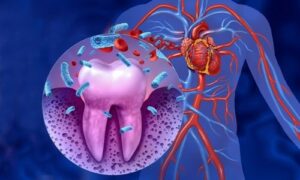Coffee is one of the most beloved beverages worldwide, known for its rich flavor and energizing properties. However, regular consumption of coffee can have several effects on your oral health. Understanding these effects can help you take the necessary steps to maintain a healthy smile while enjoying your favorite brew.
1. Staining and Discoloration
One of the most noticeable effects of coffee on your teeth is staining. Coffee contains chromogens, which are highly pigmented molecules that can adhere to the enamel and cause yellow or brown stains over time. The tannins in coffee also contribute to this discoloration, making it difficult to keep teeth white with regular brushing alone.
Tip: To minimize staining, try drinking your coffee through a straw, rinse your mouth with water after drinking, and maintain a consistent oral hygiene routine with whitening toothpaste.
2. Enamel Erosion
Coffee is slightly acidic, with a pH of around 5. This acidity can weaken the enamel, the hard outer layer of your teeth, making them more susceptible to erosion and decay. Over time, enamel erosion can lead to increased sensitivity and a higher risk of cavities.
Tip: To reduce the impact of coffee’s acidity, consider drinking water or milk along with your coffee, and avoid brushing your teeth immediately after drinking coffee, as the enamel can be softened temporarily.
3. Dry Mouth
Caffeine, a key component of coffee, is a diuretic, which means it can lead to decreased saliva production and dry mouth. Saliva is crucial for neutralizing acids in the mouth, washing away food particles, and preventing tooth decay. A dry mouth environment can promote bacterial growth, leading to bad breath and an increased risk of cavities.
Tip: Stay hydrated by drinking plenty of water throughout the day and consider chewing sugar-free gum to stimulate saliva production.
4. Increased Risk of Cavities
The combination of staining, enamel erosion, and dry mouth can create an environment where cavities are more likely to develop. The sugars and creams often added to coffee can further exacerbate this risk by providing food for cavity-causing bacteria.
Tip: Limit the amount of sugar and cream you add to your coffee, and consider using sugar substitutes or low-fat dairy options to reduce the risk of cavities.
5. Gum Health
Frequent coffee consumption can also affect your gums. The acidity and potential for dehydration can irritate gum tissue, making it more susceptible to inflammation and periodontal disease. Additionally, coffee’s tendency to cause dry mouth can lead to an imbalance in the oral microbiome, further impacting gum health.
Tip: Regular dental check-ups and professional cleanings are essential to monitor and maintain gum health, especially if you are a frequent coffee drinker.
6. Bad Breath
Coffee’s strong and distinct aroma can linger on your breath long after you’ve finished your cup. Combined with the potential for dry mouth, this can result in persistent bad breath, also known as halitosis.
Tip: Maintain good oral hygiene by brushing and flossing regularly, and consider using mouthwash to help freshen your breath after drinking coffee.
While coffee has several potential effects on your oral health, you don’t have to give up your favorite beverage to maintain a healthy smile. By being mindful of these effects and taking proactive steps to mitigate them, you can enjoy your coffee while keeping your teeth and gums healthy. Regular dental check-ups, a consistent oral hygiene routine, and making small changes to how you consume coffee can all contribute to better oral health. So, go ahead and savor your coffee, but do so with care and consideration for your teeth and gums.












